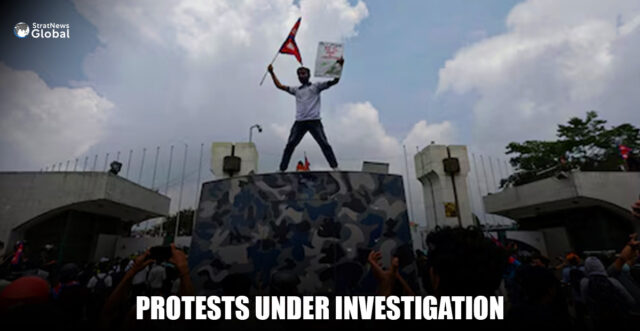Nepal’s interim government, headed by former Chief Justice Sushila Karki, has established a panel to probe this month’s anti-corruption protests, which left 74 dead and prompted Prime Minister K.P. Sharma Oli to resign, a minister said on Monday.
The demonstrations, which began as a Gen Z-led movement against widespread corruption and a lack of jobs, escalated into the Himalayan nation’s deadliest violence in decades.
More than 2,100 people were injured while protesters set fire to the main office complex that houses the prime minister’s office, the Supreme Court and the parliament building, as well as malls, luxury hotels and showrooms that the demonstrators said were owned by people close to corrupt politicians.
Rameshwore Khanal, who Karki put in charge of the finance ministry, said the three-member panel headed by retired judge Gauri Bahadur Karki had been given three months to complete the probe.
“It will investigate … the loss of life and property during the protests, excesses by both sides and people involved in the acts of arson and vandalism during the movement,” Khanal told Reuters.
In a social media post, former Prime Minister Oli also demanded an investigation into the violence and said his government did not order police to fire at the protesters. The protests were infiltrated by outsiders, and police did not possess the type of weapons which were used to fire on the crowd, Oli said.
Karki is the former chairman of a special court that hears corruption cases in Nepal and has a reputation for honesty and integrity.
Karki Vows To Address ‘Failures’
In her first public remarks since assuming office, Sushila Karki on Friday (September 19) vowed to combat corruption, generate employment, and improve living standards.
“We must accept the fact that the protests took place because of the failure to fulfil the spirit and objectives of providing good governance and prosperity enshrined in the constitution,” Karki said.
She spoke on Nepal’s national day, marking the 10th anniversary of the proclamation of the constitution.
(With inputs from Reuters)





